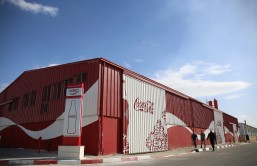Electric car giant Tesla is currently eyeing Shanghai as its next production base with in an investment deal with a Shanghai government-owned company valued at approximately $9 billion, an insider source reveals.
Tesla reportedly signed a non-binding memorandum of understanding with Jinqiao Group for constructing production facilities in Shanghai. Currently, private negotiations are still underway and Shanghai Jinqiao Export Processing Zone Development Co. (Jinqiao Group's publicly traded unit) denied that its controlling shareholder signed any documents pertaining to a joint venture with the US-based automotive company as per Reuters.
The anonymous insider said that each party is set to pool in 30 billion yuan ($4.5 billion) as part of the partnership agreement. Jinqiao is reportedly putting up land for majority of its share in the joint venture with Tesla.
Shanghai is not the only city actively vying for Tesla's investment into China. Suzhou and Hefei are just some of the Chinese cities trying to attract the American investments. Valued at $9 billion, the investment is said to eclipse Disney's $5.5-billion Shanghai theme park which was recently opened this month with celebratory fireworks and warm messages of support from both US and Chinese Presidents.
"This would be a major win for Tesla and Shanghai," said Bloomberg auto analyst Steve Man. "The investment will probably include a nationwide dealership network, superchargers, R&D center and potentially a second 'Gigafactory."'
For foreign companies keen on capturing a sizeable chunk of the Chinese car market while avoiding a 25% import tax, hooking up with a local company is a must. For Tesla, investment in China is important to position itself in the world's largest automotive market. Tesla has already been flooded with Model 3 pre-orders following the car's recent unveiling this year.
"Tesla can avoid a 25 per cent import levy and also reduce delivery costs, making its cars more competitive in the Chinese market. Shanghai should welcome Tesla to build its production facilities as it is the government's policy to promote the use of new energy vehicles," said Shanghai-based consultancy Automotive Foresight analyst Zhang Yu as quoted by South China Morning Post.








